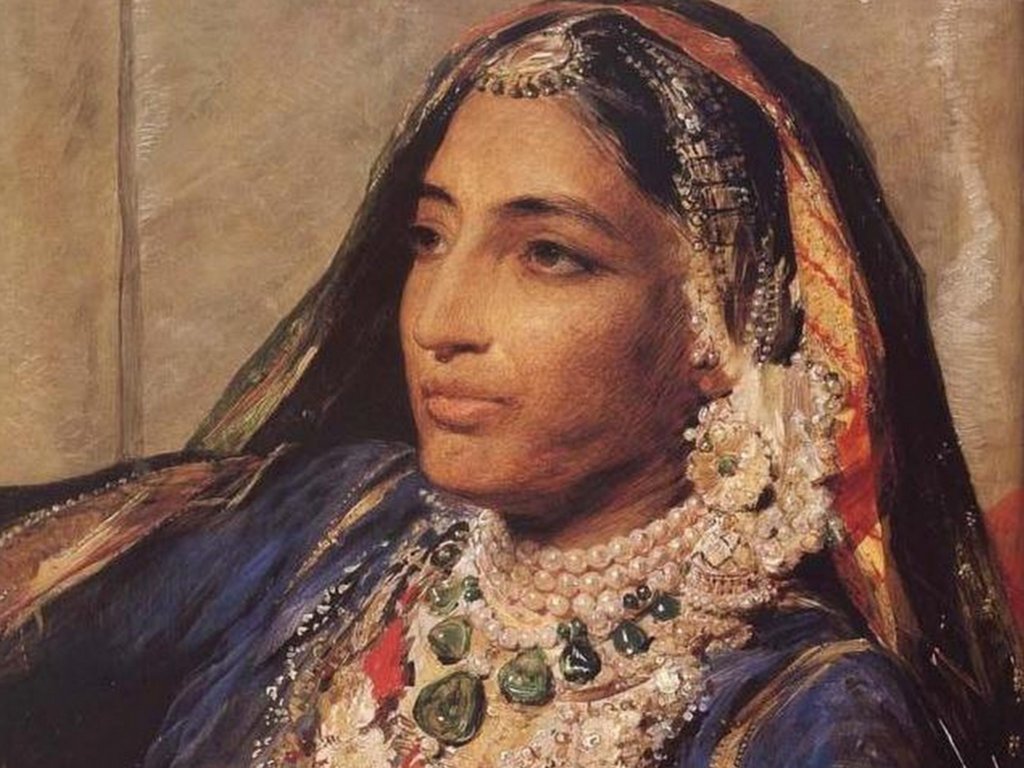A pair of gold earrings from the collection of Maharani Jind Kaur, the last Sikh queen of Punjab, will be auctioned as part of the Islamic and Indian sale in London later this month, PTI reported.
The pair of earrings is estimated to fetch between £20,000 (Rs 19 lakh) and £30,000 (Rs 28 lakh) when it goes up for sale at the Bonham auction house in London on April 24.
Jind Kaur, the youngest wife of Ranjit Singh and the only one who did not commit sati on his funeral pyre in 1839, was the de facto ruler of Punjab. “She was remarkable in how she discarded sati and purdah, dominant at the time, and led the courts, had meetings with chief ministers and the armies. All of them were taking her counsel,” Professor Nikky-Guninder Kaur Singh of Colby College, Maine, United States, told the Guardian.
she was appointed Regent after her five-year-old son Duleep Singh was given the throne of Lahore, as the kingdom extended from Khyber Pass to Kashmir, in 1843. As a result of armed opposition led by Jind Kaur — dubbed the Anglo-Sikh War — the East India Company invaded and annexed Punjab. The British, who saw Kaur as a threat who could lead another uprising among the Punjabi people, launched a smear campaign to discredit her, calling her the “Messalina of the Punjab” — a seductress too rebellious to be controlled, according to reports. To prevent her from influencing her son, she was separated from Duleep Singh and imprisoned at Chunar Fort in Uttar Pradesh in 1846.
Her personal wealth was confiscated and state treasury was plundered, according to the Bonhams’ historians. The famous Kohinoor diamond and Timur ruby were sent to London as gifts for Queen Victoria. The then nine-year-old Duleep was also sent to the United Kingdom and lived as a godson of Queen Victoria.
Kaur escaped from captivity disguised as a servant, and fled to Kathmandu, where she wrote a letter boasting that she escaped by “magic.” She was was given asylum by the king of Nepal, but the British Resident stationed there kept an eye on her, believing her to have enough power to revive the Sikh dynasty. She lived in Nepal for 11 years.
It was only after she arrived in the United Kingdom that her jewelry, including the earrings that are going up on sale, were given back to her. Her joy was so great that “she forthwith decorated herself, and her attendants, with an assortment of the most wonderful necklaces and earrings, strings of lovely pearls and emeralds,” before Lady Login visited her, according to the book, Lady Login’s Recollections by Lady Lena Campbell Login.
“These gold earrings are beautiful pieces of jewelry in their own right. They are also an important reminder of a courageous woman who endured the loss of her kingdom, and persecution and privation, with great dignity and fortitude,” Oliver White, Bonhams head of Islamic and Indian art, said in a statement.
Duleep Singh, who converted to Christianity, met his mother 13 years later in 1861 in Calcutta, after the British Resident reported that she was “blind and lost much of the energy that characterized her.” She then moved to the United Kingdom with her son, who converted back to Sikhism after meeting her. She died in 1863 at the age of 46 in her sleep at Abingdon House in Kensington.
Jind Kaur’s story was detailed in the film, The Rebel Queen, which premiered in 2010 at the New York International Sikh Film Festival.
After her death, Duleep Singh’s attempts to return to the kingdom were thwarted by the British government. At the age of 55, Duleep died in Paris. His daughter, princess Sophia Duleep Singh, went on to become a prominent suffragette who fought for women’s right to vote in the United Kingdom. She was featured on a Royal Mail UK stamp on Feb. 6, 2018.
